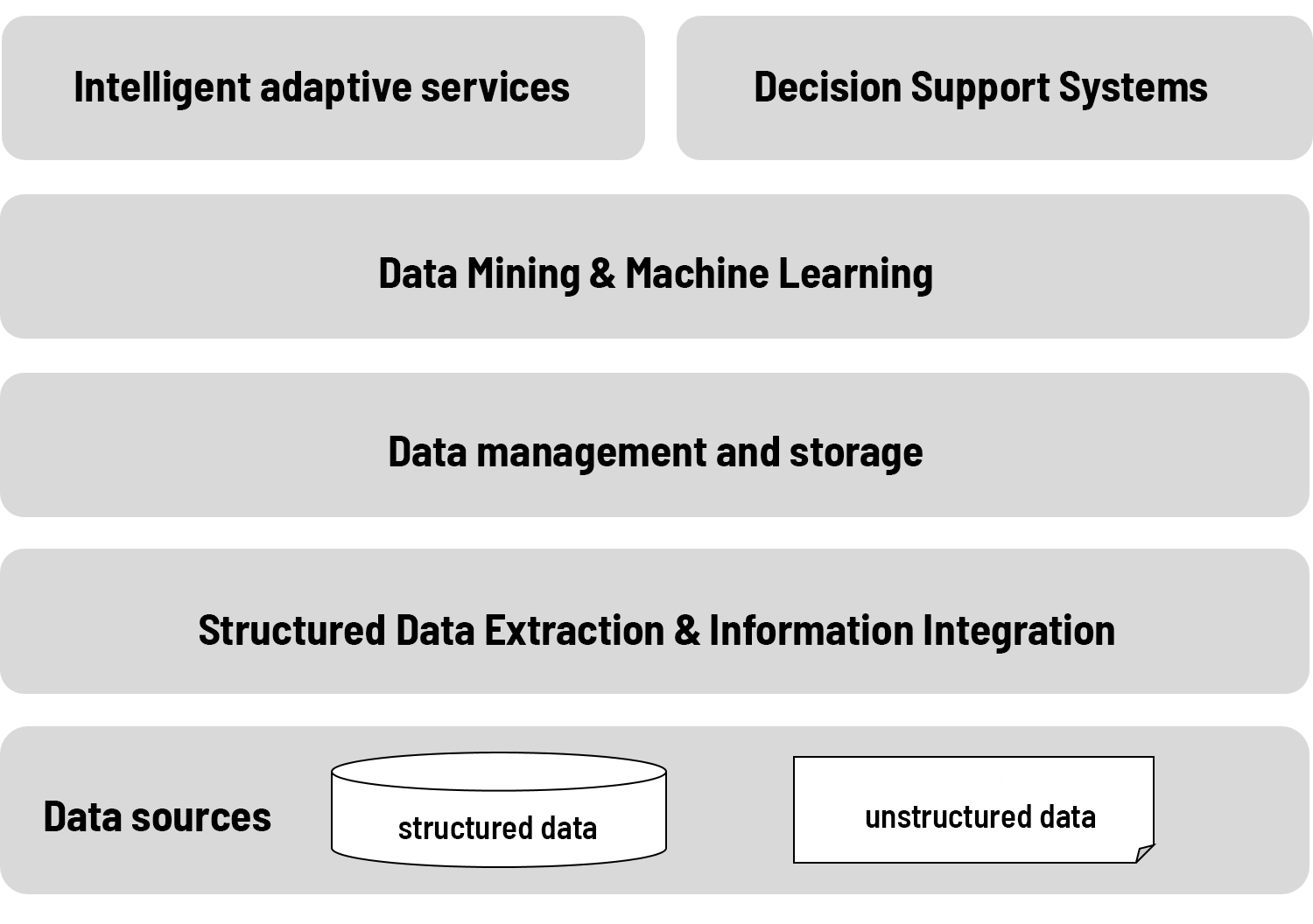Profil
The Data Science research group addresses all aspects of information mining, management, and analysis with the goal of extracting novel knowledge. A particular focus is on the consideration of novel information sources from the field of Big Data, such as user-generated content (UGC) or transactional data from social media platforms, location tracking using mobile services, or sensor data from IoT environments, for example. In detail, the research group is working on the following key areas.
Structured Data Extraction & Information Integration
Extraction of structured data from different data sources and data formats as well as intelligent approaches to the integration of heterogeneous data formats
- Data extraction from operational systems and data sources (offline and online)
- Web crawling & wrapper induction: manual and (semi-)automatic extraction of structured data from semi-structured data formats (e.g. html files)
- Data generation using novel methods, e.g. sensors, mobile devices, etc.
- Integration of heterogeneous data formats, especially by means of Semantic Web technologies based on domain-specific ontologies and Linked Open Data approaches.
Data management and storage
Data management considering different concepts for handling structured and unstructured data as well as large data sets and heterogeneous data formats
- Modeling of data warehouse structures (e.g. normalized vs. multi-dimensional modeling)
- Flexible and powerful concepts of data management in the context of Big Data (NoSQL, Data Lakes, etc.)
- Knowledge graphs and graph databases for providing semantically annotated information
Data Mining & Machine Learning
Applying machine learning methods to identify relevant patterns and trends and to generate novel knowledge.
- Testing, in particular, of novel machine learning methods to identify interesting patterns and trends (e.g. deep learning methods)
- Using novel data sources (Big Data) to gain new insights or to improve estimation or forecasting accuracy
- Sentiment analysis and opinion mining using text mining methode
- Image and video analysis
Intelligent adaptive services
Intelligent adaptation and personalization of services based on available information and insights
- Personalization of offers and recommender systems
- Personalization and adaptation of applications and services (mobile services, online stores, websites, etc.)
- Conversational systems (esp. recommender systems) considering multi-modal user interfaces (e.g. free text input, voice input, etc.)
- Intelligent services based on knowledge graphs (ontology browsing, semantic reasoning)
Decision Support Systems
Use of gained knowledge as input for decision support systems
- Adaptation of decision support systems and testing of suitable interface metaphors
- Integration of data mining methods and models into decision support systems
- Semantic machine learning, i.e. supporting the interpretation of machine learning results based on semantically annotated data (e.g. within a knowledge graph)

Contact & People
Allgemeine Kontaktinformationen
| Postal address |
RWU Hochschule Ravensburg-Weingarten University of Applied Sciences Data Science Postfach 30 22
D 88216 Weingarten |
|---|
Members of the Research Group


